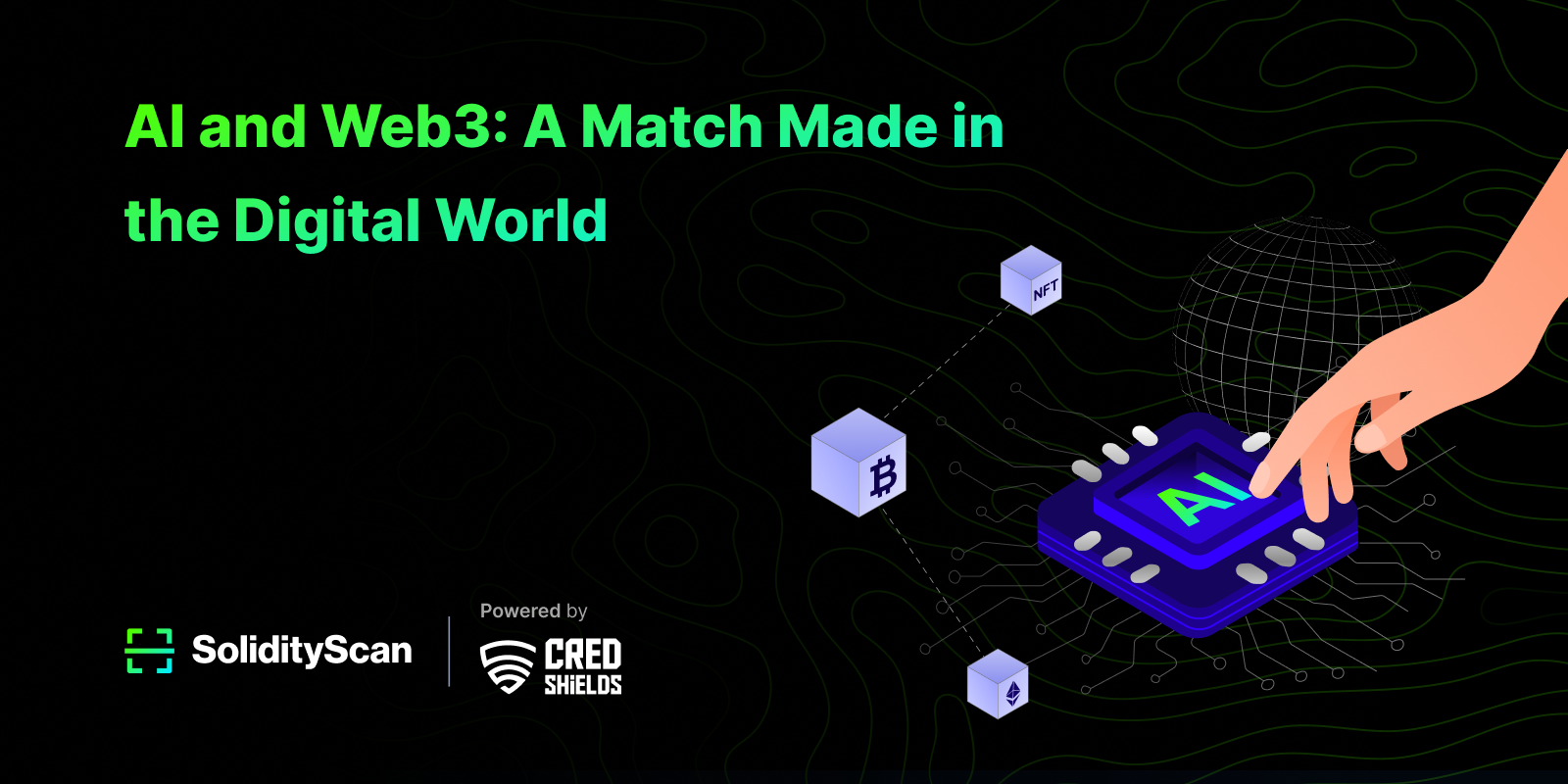The convergence of artificial intelligence (AI) and Web3 technologies is set to transform the digital environment. By integrating Web3’s decentralized nature with AI’s sophisticated capabilities, we may uncover unprecedented prospects while addressing existing system restrictions.
Enhancing Web3 Security
AI has emerged as a powerful instrument in the field of Web3 security. AI-powered systems can proactively detect and mitigate a wide range of risks by utilizing powerful algorithms and machine learning approaches. These systems can detect abnormalities, forecast possible attacks, and respond to incidents quickly by continuously analyzing large databases.
One of the most important uses of AI in Web3 security is detecting and mitigating smart contract vulnerabilities. AI-powered tools may examine smart contract code for possible flaws like reentrancy attacks, access control concerns, and logic faults. By proactively resolving these vulnerabilities, developers may dramatically lower the likelihood of exploitation.
Furthermore, AI can help detect and prevent fraudulent actions. Artificial intelligence-powered systems may detect suspicious activity and alert prospective fraudsters by evaluating user behavior, transaction patterns, and other pertinent data. This contributes to the integrity of the Web3 ecosystem and protects users from financial losses.
In the case of a security breach, AI can speed up incident response operations. AI can drastically shorten the time required to contain and mitigate a breach by automating key operations such as threat identification, impact assessment, and cleanup.
Revolutionizing User Experience
Within the Web3 environment, AI has the potential to completely transform the user experience. AI may produce user experiences that are more efficient, tailored, and intuitive by utilizing the capabilities of machine learning and natural language processing.
Personalization is one of the most important ways AI is improving the user experience. Platforms with AI capabilities can customize interfaces, recommendations, and content to meet the needs of each user by examining their past data, preferences, and behavior. User happiness and retention rise as a result of a more interesting and pertinent experience.
The creation of natural language interfaces is another important area where AI is having an impact. AI can streamline user-Web3 application interaction by comprehending and reacting to natural language questions. By doing this, the technical barrier to entry may be considerably lowered, increasing Web3’s accessibility.
AI is also capable of automating a wide range of repetitive operations, like dealing with decentralized apps, managing digital assets, and making trades. As a result, users have more time to devote to higher-level tasks like innovation and strategic decision-making.
Accelerating Innovation
AI has the potential to quicken the Web3 ecosystem’s rate of innovation. AI frees up developers’ time to concentrate on more complex problem-solving and innovative ideas by automating repetitive chores and optimizing development procedures.
Automated code production is one of the main ways AI is spurring creativity. Development time can be greatly decreased by using AI-powered tools that can scan existing code, spot trends, and produce new code snippets. Furthermore, AI can optimize smart contract code for security and efficiency, guaranteeing the stability and resilience of apps.
Finding new chances is another area where AI is having a big influence. Artificial intelligence (AI) algorithms can find new business models, possible collaborations, and emerging trends by evaluating enormous volumes of data. This can help developers and entrepreneurs remain ahead of the curve and take advantage of the newest innovations.
Addressing Ethical Considerations
Despite the enormous potential advantages of AI in Web3, it is imperative to address the difficulties and ethical ramifications of its application. The following must be taken into account in order to guarantee the responsible and fair development of AI-powered Web3 solutions:
1. Data Privacy and Security:
* User data protection is crucial. AI systems need to be built with user privacy and data security in mind.
* It is essential to put strong data protection mechanisms in place, like encryption and anonymization.
2. Algorithmic Bias and Fairness:
* If AI algorithms are not educated on representative and diverse data, they may unintentionally reinforce prejudices.
* It is crucial to create algorithms that are impartial and equitable in order to prevent discriminatory results.
3. Job Displacement and Societal Impact:
* AI automation changes the nature of work and opens up new opportunities, but it might also result in job displacement in some industries.
* To provide people the skills they need to prosper in the AI-driven economy, it is imperative to fund education and training initiatives.
By addressing these challenges and embracing the potential of AI, we can build a more secure, efficient, and inclusive Web3 ecosystem.

